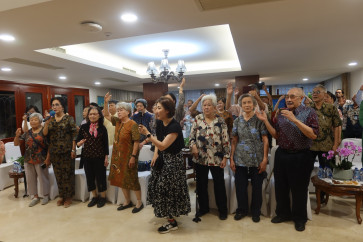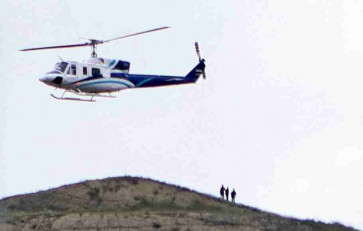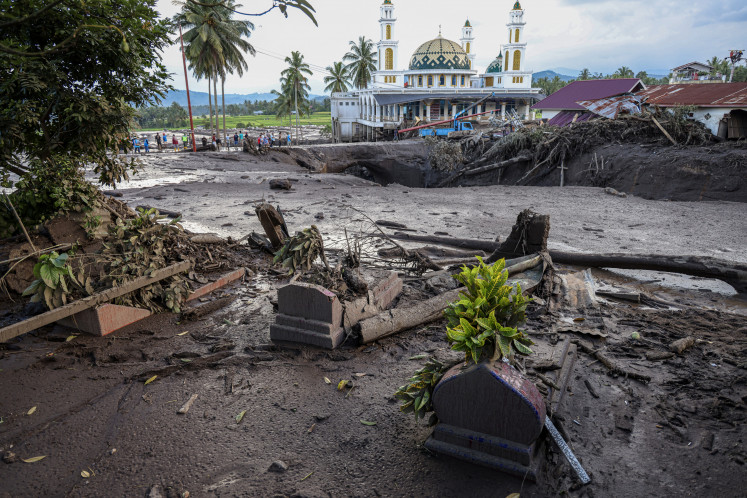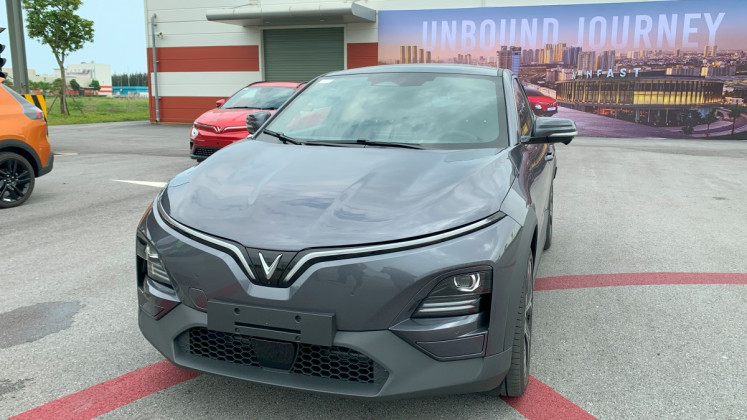New road map for ocean recovery designed
A forum of environmental NGOs on Wednesday started drafting a road map to serve as a guideline for policymakers and stakeholders in determining their course of action to recover Indonesiaâs critical marine condition
Change Size

A
forum of environmental NGOs on Wednesday started drafting a road map to serve as a guideline for policymakers and stakeholders in determining their course of action to recover Indonesia's critical marine condition.
Initiated by Greenpeace Indonesia, the forum is inviting all people to participate in the drafting process by sharing their opinions and supporting a petition as an 'ocean defender' through the website www.defendourocean.org.
The road map is in follow up to the Joint Vision for Oceans of Indonesia in 2025 declaration made by the forum in June, coinciding with the visit of the legendary Rainbow Warrior ship to Benoa harbor.
Longgena Ginting, director of Greenpeace Indonesia, said that the road map would be recommended to the new regime in 2014, including to political parties that would endorse their candidates for the presidency.
The road map is targeted for completion by March 2014. Starting today, the forum will hold focus group discussions in several places nationwide to gather input from the public and government officials.
'This road map is crucial to help revive the condition of Indonesia's ocean, which is seriously threatened by pollution, overfishing and the impact of climate change,' Longgena said in a public discussion in Denpasar.
He explained that the most serious threats came from overfishing and destructive fishing, expansion of mining concessions in coastal areas and on small islands, pollution, abrasion and rising sea levels. These facts have been revealed in the Greenpeace report on the crisis of the Indonesian ocean.
'Indonesia's oceans are important centers of marine biodiversity, and are at the same time highly valuable fishing grounds providing food and livelihoods to millions of people in the country. Moving forward to ensure that this resource continues to provide food for future generations means rehabilitating and protecting the marine ecosystem, and at the same time curbing illegal, unreported and unregulated fishing and overfishing,' Greenpeace recommended in its report.
According to Greenpeace, Indonesia is the largest archipelago in the world with 17,504 islands. Its coastline, at 95,181 kilometers, is the fourth longest in the world. Sixty five percent, or 324, of its total 497 districts and cities are coastal, and around 80 percent of its population lives in coastal areas.
However, the country is facing a huge crisis due to improper and unsustainable marine management, as the development is in favor of investors, instead of the people's interests.
Suryadi Darmoko, from environmental group Walhi Bali, said that the road map was expected to result in solutions to improve development policies, especially regarding coastal management.
'Through this road map, we would like to offer key actions that should be implemented by the government and all related stakeholders to recover and protect Indonesian ocean and marine resources, to ensure that the ecosystem would be conserved and people's livelihoods would be enhanced,' he said.









